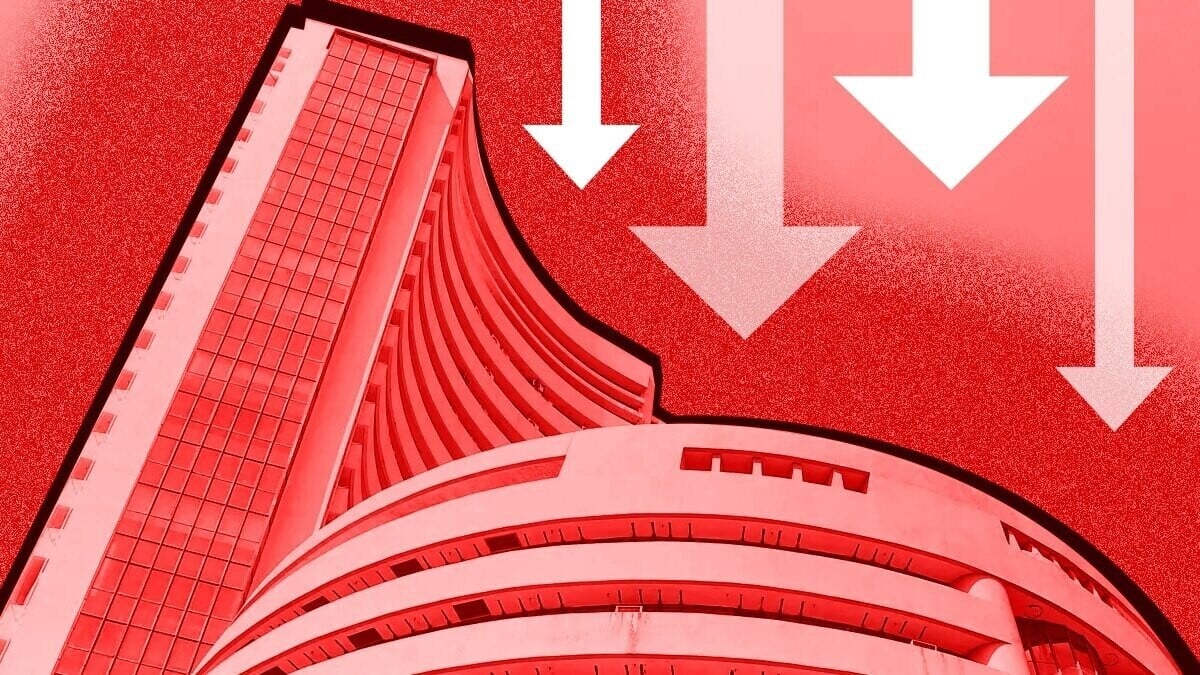
Sensex nosedives 800 points: What's behind today's stock market crash
What's the story
The Indian stock market fell sharply for the fourth consecutive day today, with the BSE Sensex crashing by over 800 points. The fall comes mainly due to rising crude oil prices and a depreciating rupee.
The Sensex opened at 76,629.90 against its previous close of 77,378.91 and fell to an intraday low of 76,535.24, a drop of over 1%.
Market downturn
Nifty 50 follows suit with over 250-point drop
The Nifty 50 index also followed a similar downward trend, opening at 23,195.40 against its previous close of 23,431.50 and falling by more than 1% to hit an intraday low of 23,172.70.
The mid and small-cap segments were especially hard hit by this selloff trend. The BSE Midcap and Smallcap indices witnessed declines of up to 2% in today's trading session.
Investor impact
Market capitalization of BSE-listed firms drops significantly
The total market capitalization of BSE-listed companies declined to nearly ₹425 lakh crore from ₹430 lakh crore in the last session.
The decline in value has caused investors to lose nearly ₹5 lakh crore in just five minutes of trading opening.
In the last four trading sessions, investors have lost nearly ₹17 lakh crore collectively due to the market decline.
Economic factors
Rising oil prices and weakening rupee fuel market downturn
Oil prices hit their highest level in over three months today. US sanctions aimed at disrupting Russian crude oil exports to major importers, including China and India, are driving the price surge.
The rising crude oil prices are bad news for India's fiscal health, as it is among the largest importers of the commodity.
Indian rupee also hit a record low of 86.27 against the US dollar in early trade today amid rising crude oil prices and a strengthening dollar.
Market influences
Foreign capital outflow and budget expectations influence market
Foreign portfolio investors (FPIs) have sold off Indian equities worth over ₹21,350 crore till January 10, after a ₹16,982 crore selloff in December.
The trend of foreign capital outflow is another contributing factor to the stock market downturn.
Meanwhile, with the Union Budget 2025 approaching amid market volatility, experts are keeping a close watch on government measures that could potentially impact consumption and growth.